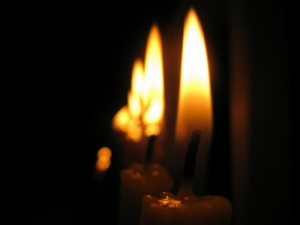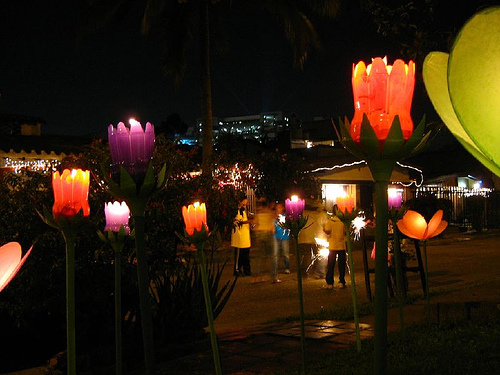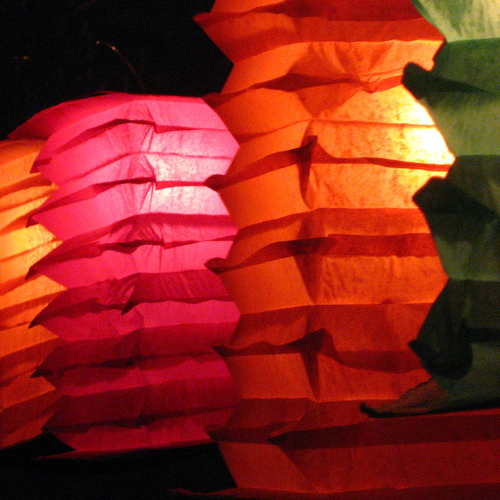Día de las Velitas (Day of the candles), also known as Día de los Alumbrados (Day of the Lighting), is a traditional celebration of Colombia in honor to the Virgin Mary and the Immaculate Conception. On the evening of December 7 or early morning of December 8, Colombian families light candles and lanterns in both houses and streets, and welcome the Christmas season.
According to newspaper El Tiempo [es], December 8 was declared a festivity by Pope Pius IX on 1854, after a pilgrimage made in honor to the Virgin Mary around 431 B.C. The Pope decided to celebrate that day bringing light on the principal dome of St. Peter’s Basilica in Vatican City.
This year, the Día de las Velitas was cheerfully documented by bloggers who shared collections of photos and their unique ways of celebration. For example, Madame Web explained in her blog La Lógica de mi Papá that she particularly likes this festivity [es] because it makes her feel closer to those who live around her:
Me gusta mucho el día de las velitas porque en la calle, por lo menos acá en Pasto, se siente la unidad, en los barrios los vecinos de todas las casas echando globos, música por todas partes, familias reunidas, los niños corriendo y jugando, los altares a la Virgen en los garajes, algunas procesiones, comida y festejo por todas partes.
Blogger Juan David Escobar from Reticente pondered on how the festivity had managed to stay with him [es] although its meaning had completely changed:
Cuando niño la abuela nos dijo que eran velitas para la virgen. Ya cuando pelaos entendimos que eran velitas para la “candelada del diablo”. Y ahora, sospecho que son velitas para que me den calor y me permitan pensar al ritmo del fuego que consume unos palos de parafina de colores.
Blogger Lunaisa narrated her family reunion [es] on the night of December 7:
Sin ser una persona religiosa, siempre nos reunimos en familia a prender velitas y farolitos y volar globos con un deseo amarrado al globo.
Ayer, domingo aprovechamos para reunirnos y pasar un rato muy agradable en familia y con algunos amigos. Pasamos un rato muy agradable a la luz de las velas, una buena botella de tinto y lo mejor de todo una agradable charla.
Yesterday, Sunday, we took the chance to gather and spend a nice time with the family and some friends. We had a nice time in candlelight, a nice bottle of red wine, and best of all, had a nice talk.
Global Voices contributor Cati Restrepo shared in her personal blog [es] a video of the scattered lights in the streets of Santa Fé de Antioquia:
A pool of photos dedicated to Christmas lighting in Medellín, Colombia can be found on Flickr. Festivities similar to Día de las velitas are celebrated in other countries, like France's Fête des lumières tradition.
All photos taken by Flowery *L*u*z*a*, and used with permission following a Creative Commons License.










1 comment
A priest told me, many years ago, that candles are lighted in order to assure that the angel who will announce to Maria the following day do not miss his way, his path. If the angel is lost, no immaculate conception have place and no Jesus’ birth on December 25th happens.